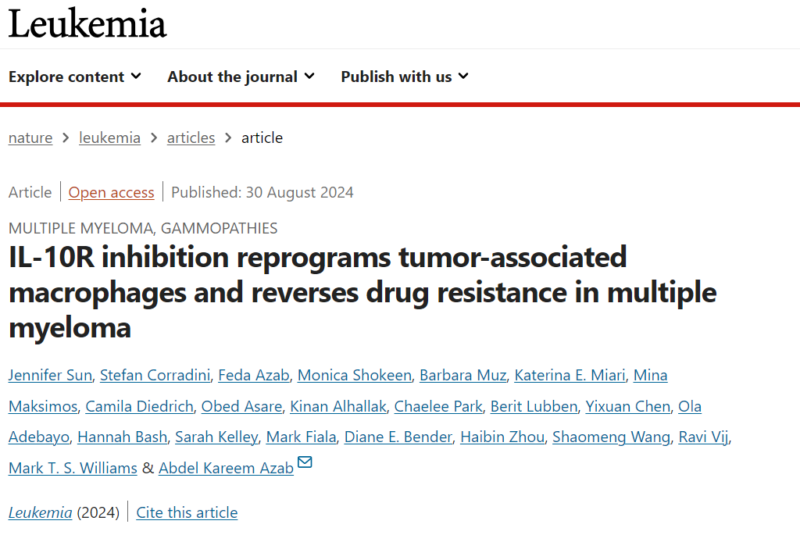Robert Orlowski shared on X:
“Myeloma Paper of the Day: IL-10 is over-expressed in myeloma BM models and mediates M2-like polarization of TAMs, while inhibition of the IL-10/IL-10R/STAT3 axis prevents M2 polarization and re-sensitizes myeloma to therapy in vitro and in vivo.”
Authors: Jennifer Sun, Stefan Corradini, Feda Azab, Monica Shokeen, Barbara Muz, Katerina E. Miari, Mina Maksimos, Camila Diedrich, Obed Asare, Kinan Alhallak, Chaelee Park, Berit Lubben, Yixuan Chen, Ola Adebayo, Hannah Bash, Sarah Kelley, Mark Fiala, Diane E. Bender, Haibin Zhou, Shaomeng Wang, Ravi Vij, Mark T. S. Williams and Abdel Kareem Azab.

Source: Robert Orlowski/X
Other posts featuring Robert Orlowski on OncoDaily.
Robert Orlowski, M.D., Ph.D., holds multiple positions at The University of Texas MD Anderson Cancer Center, including Chairman, Ad Interim Director of Myeloma, and Professor of Medicine in the Departments of Lymphoma/Myeloma and Experimental Therapeutics within the Division of Cancer Medicine. Additionally, he chairs the SWOG Barlogie/Salmon Myeloma Committee, which is part of the National Clinical Trials Network, dedicated to advancing new therapies and understanding the biology of myeloma.
Dr. Orlowski’s expertise lies in both clinical practice and scientific research, with a particular focus on translating laboratory discoveries into effective treatments for patients. He investigates drug resistance mechanisms in myeloma and seeks to identify predictive biomarkers for treatment response. Notably, his past contributions include leadership roles in developing proteasome inhibitors like bortezomib and carfilzomib, as well as monoclonal antibodies such as daratumumab and elotuzumab.


